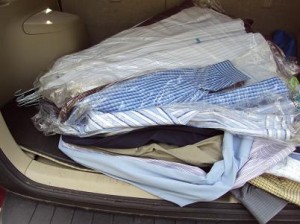Birgitta and I have moved. Not permanently, just for a few days. The wood floor in our cottage is getting a new lease on its 73 year old life, and today is the first of several “poly days” when polyurethane will perfume the house. Sticky floors will dry by next week.
Having to leave home is an inconvenience for us, but it brought to mind the thousands who live in refugee camps around the world, routed out of their homes amidst traumatic circumstances.
Birgitta and I had planned ahead, making lists beforehand and packing what we wanted; refugees often leave on the run, taking only what they can carry. We left for the happy reason of home improvement; they leave to escape war or, worse yet, to preserve their lives. We’ll be home in just a few days;  refugees may be displaced for months, maybe years. Some never return home.
refugees may be displaced for months, maybe years. Some never return home.
When the biblical Abraham was told to leave home, it fell somewhere between inconvenient and awful. He wasn’t a refugee but wasn’t given a return date either. And he wasn’t given a destination. Instead he was told, “Pick up and go.” But because it was the voice of God directing him, he did it.
After that, Abraham lived as a nomadic tent-dweller, roaming desert terrain with his household and possessions, believing there was “milk and honey” at the end of the journey. He didn’t know all that we know today, that many generations would come and go before God completed his promise. In the mean time, Abraham was often sent packing.
Recent news stories have shown thousands leaving their homes to escape natural disasters and then returning to find no home at all. And of course lean financial times have displaced many others who’ve been forced out of homes they love. Dorothy of Oz fame put it well. “There’s no place like home.”
So many stories of dislocation make me wonder what God is up to.
We’ve all heard the expression, “Home is where the heart is.” Could it be that’s what God is trying to show us? Maybe home isn’t about wood floors, mud huts, mansions or igloos but about who’s inside them. If so, then losing our address might not be as traumatic as we think. As long as we hold onto those we love, anyplace can become a home.
And God is hoping to be on that list of the ones we love best. As a matter of fact, he wants to be the heart of our homes, wherever we are. When he is, he assures us we’ll always have a home, not just in the distant someday but in the now. When we get displaced, he goes along. Though we lose our houses, we don’t lose him. If we must pitch a tent, he’s inside of it with us.
And maybe it’s those times when we’ve been forced out of our brick-and-mortar homes that we suddenly feel most at home with him.
“Lord, through all the generations you have been our home!” (Psalm 90:1)




